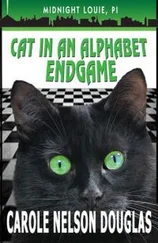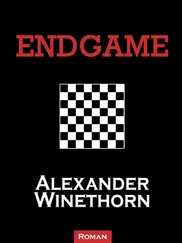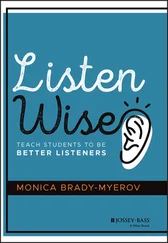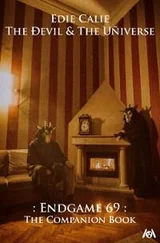
According to the tale told by Washington Irving, when Rip Van Winkle awoke and returned to his village, twenty years had passed, and many things had changed. When Bobby Fischer, chess’s version of Van Winkle, emerged after twenty years, the thing that had changed the most was him . The smiling, handsome Bobby Fischer who immediately after the 1972 championship charmed audiences on television shows and crowds on the steps of New York’s City Hall, had been replaced with a swaggering Bobby Fischer filled with angst, irritation, and pique.
The very idea of Bobby Fischer wanting to talk to the press was astonishing, but this new Fischer called for a press conference the night before the match was to begin. He’d been interviewed throughout his chess career, sometimes by assembled groups of journalists, but this was his first formal press conference in more than twenty years, and he was coiled, ready to pounce on any question. Most of the members of the press were ready to see a ghostlike Bobby Fischer appear, someone totally apart from the hero of Reykjavik; many of the journalists who were assembled had never seen him in the flesh before—nor had the public had a glimpse of him during the two decades of his Wilderness Years. Bobby strode in, looking larger and healthier than imagined, and swiftly took his seat on the dais. He appeared not quite as physically impressive as a football linebacker, but certainly looked like a broad-shouldered athlete, perhaps a retired Olympic swimmer.
He’d insisted that all questions be submitted to him in advance, and he sifted through the cards searching for those he chose to answer. Spassky, looking uncomfortable, sat on Bobby’s right, and Vasiljevic, smoking a meerschaum pipe and appearing relaxed, was on his left. After a few minutes of awkward suspense, Bobby looked up and read aloud a reporter’s name, his affiliation, and the first question. “Let’s start with some impudent questions from The New York Times, ” Bobby said impudently:
Roger Cohen:Why, after turning down so many offers to make a comeback, did you accept this one?
Bobby Fischer:That’s not quite true. As I recall, for example, Karpov in 1975 was the one who refused to play me under my conditions, which were basically the same conditions that we are going to play now.
Roger Cohen:If you beat Spassky, will you go on to challenge Kasparov for the World Championship?
Bobby Fischer:This is a typical question from Mr. Roger Cohen from The New York Times . Can he read what it says here?
(Fischer then turned and pointed to the banner behind the dais that said “World Championship Match.” The audience applauded.)
Traditionally, with rare exceptions, members of the media don’t applaud at press conferences, since it would be considered an endorsement of what the speaker is saying, rather than just reporting the information being given. Although a large number of reporters had been interested in attending Bobby Fischer’s controversial press conference, journalists were forced to pay $1,000 for accreditation at Sveti Stefan. As a result, many chose not to cover the match—at least, not from the “inside.” There were only about thirty journalists present in the room that day, although there were more than a hundred people in attendance. The applause very likely came from the non-journalists in the crowd, who may have been handpicked claques for their anti-American and pro-Bobby leanings.
Bobby kept reading Cohen’s follow-up questions and not directly answering them, just making comments such as “We’ll see” or “Pass on,” until he read Cohen’s final question: “Are you worried by U.S. government threats over your defiance of the sanctions?”
Bobby Fischer:One second here. [He then removed a letter from his briefcase and held it up.] This is the order to provide information of illegal activities, from the Department of the Treasury in Washington, D.C., August 21, 1992. So this is my reply to their order not to defend my title here. [He then spat on the letter, and applause broke out.] That is my answer.
Vasiljevic, also applauding, looked at him approvingly and smiled; Bobby leaned back in his chair, swiveled back and forth, and smugly basked, Mussolini-like, in his courtiers’ adulation.
Bobby Fischer’s spit was sprayed around the world. His anti-Americanism was lambasted on the editorial pages of the Daily News (“Fischer Pawns His Honor”) and The New York Times (“Bosnia’s Tragedy and Bobby’s”) and reported in newspapers, magazines, and television broadcasts on almost every continent. The consensus reaction was that Bobby’s expectoration reeked of callousness regarding the carnage taking place in Bosnia, and was a clear flouting of, if not international law, then at least moral norms. Bobby’s bizarre act was likened to such other symbols of anti-American defiance as Ezra Pound’s “Heil Hitler” salute, Jane Fonda’s pose on a North Vietnamese tank, and even Tokyo Rose’s propaganda broadcasts during World War II.
One of the most surprising criticisms of Bobby’s statements came from Bobby’s close friend and former teacher Jack Collins, the Yoda of American chess. “I am bored and disgusted with him,” said Collins. And then, mentioning the adulation that Bobby was receiving in Yugoslavia, Collins added, “They make so much out of a goof like him.” Another close friend, William Lombardy, disagreed, however: “Yes, Fischer betrayed chess and everybody. But he’s still magic, and can do a lot for the game. Bobby and Boris are finally cashing in. I don’t begrudge them that.”
Bobby continued making outrageous—or at least controversial—statements as he answered more of the reporters’ questions. When asked about his views on Communism, he said, “Soviet Communism is basically a mask for Bolshevism which is a mask for Judaism.” Denying that he was an anti-Semite, Fischer pointed out with a smirk that Arabs were Semites, too: “And I am definitely not anti-Arab, okay?” Calling Kasparov and Karpov “crooks” for what he considered their unethical collaboration, he also included Korchnoi on his hate list: “They have absolutely destroyed chess by their immoral, unethical pre-arranged games. These guys are the lowest dogs around.”
Although she sat in the audience at the press conference, Zita didn’t answer any questions, at least publicly. Later, in a semi-off-the-record interview she gave to a Yugoslavian journalist, she claimed that she was not planning to marry Bobby, but that she was attracted to his honesty. She added, “I like geniuses or crazy people,” not saying which category, if either, Bobby fit into.

Bobby walked rapidly to the board, sat in his chair at precisely 3:30 p.m. on September 2, 1992, stretched his right arm across, and shook Spassky’s hand. He was dressed in a blue suit and wore a red-and-white tie, giving him a certain patriotic look. And if there was any doubt about his nationality, a small American flag could be seen on his side of the table, facing the audience; Spassky, who’d become a French citizen, had the tricolors of France next to him. Lothar Schmid, the arbiter who’d directed the 1972 match between the two grandmasters, was once again present, and he started the clock. And as Schmid depressed the button, a wave of nostalgia rolled over everyone watching. Twenty years had passed since the last Fischer-Spassky showdown, but each of the three main players seemed approximately the same—excepting some gray hairs, additional furrows, and extra girth around the middle. Laugardalshöll had morphed into the Hotel Maestral. Iceland had become Yugoslavia. Bobby was still Fischer. Boris was still Spassky. The game was still chess.
Читать дальше
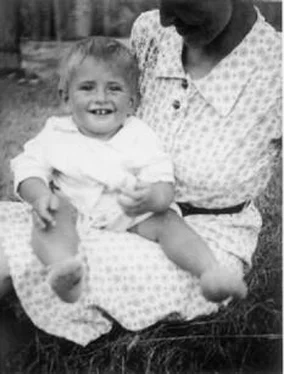


![Антон Текшин - EndGame [СИ]](/books/394477/anton-tekshin-endgame-si-thumb.webp)
